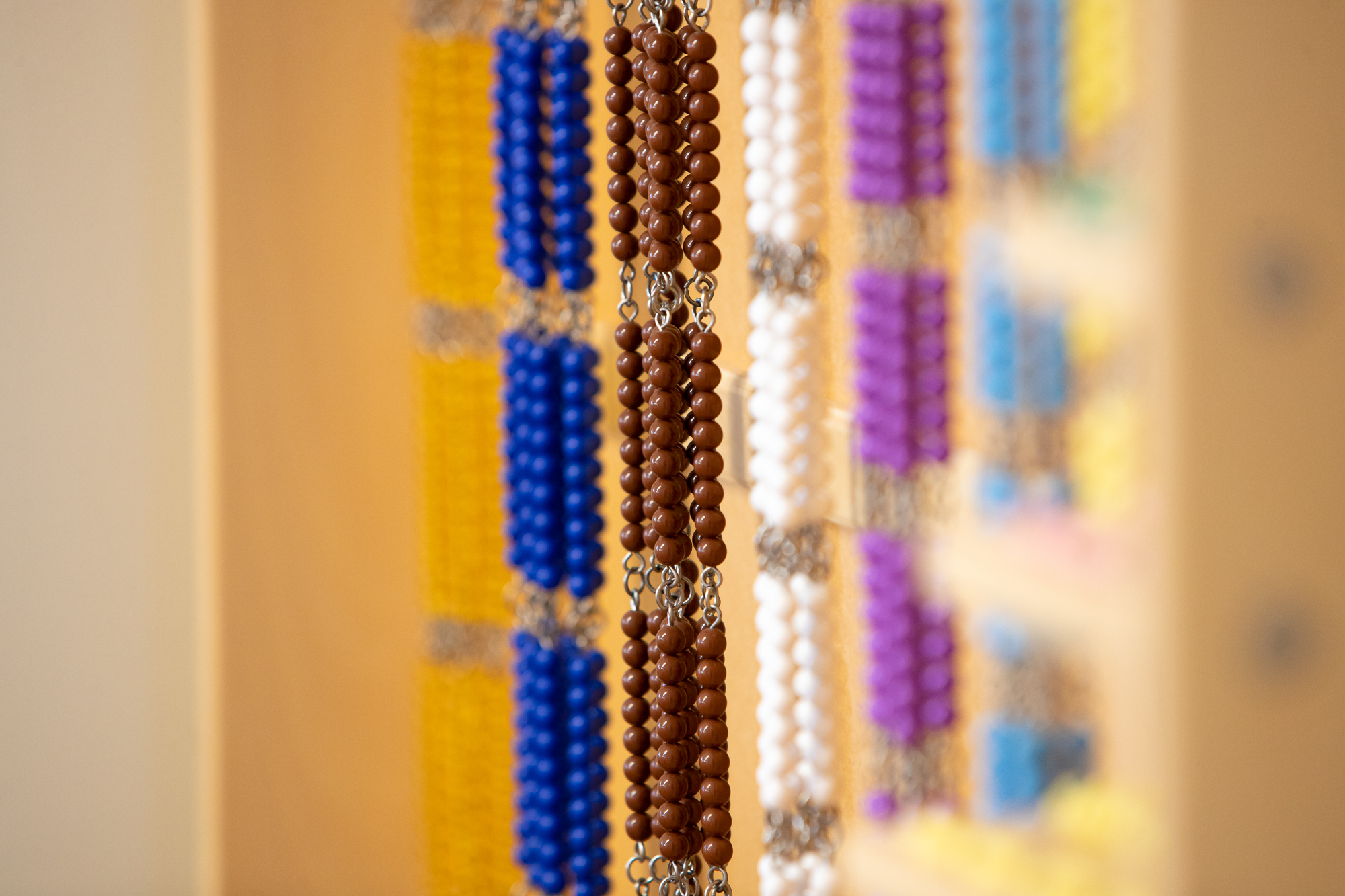
Maria Montessori was a revolutionary and a visionary in the field of education. She shifted the attention away from the traditional teacher-directed learning model to a learner-centered one. By recognizing a child’s natural desire to learn and providing them with scientifically-designed materials, each child develops concentration, coordination, independence, and a regard for order.
Maria Montessori encouraged us to be aware of the fact that children learn a lot from each other. By having a mixed age classroom, children have a much greater opportunity to find a working partner who matches their current interest and ability. Often the children who choose the activity are of different ages but their interests are similar. The older children are also the models of expected behavior. Children learn by imitating others–and with so many excellent examples, they learn quickly from their peers. The mixed age groupings also allow the child to witness their own growth in a very concrete way. They easily can see during their second year that they are able to do much more than the younger children who have just joined their group.
During the third year, children are so comfortable with their environment, the activities and their teachers, that they function as ready resources for the younger ones. Even the most reserved Kindergarten children are blessed with this special honor. This is a great ego booster. It is not unusual for observers to comment on the fact that the older children can frequently be seen helping the less experienced ones carry a heavy map, set out an activity in sequence on their work mat or read an unfamiliar word. Having a mixed age group is a vital part of all Montessori classrooms.
Among the benefits of a Montessori education:
- Each child learns at his/her own pace in a carefully prepared environment.
- Materials are sequenced from the concrete to the abstract, allowing for repetition and success. Many materials are self-correcting.
- Montessori helps a child develop focus, concentration, independence, and to learn and appreciate order in their work.
- Teachers have a deep respect for children as unique individuals.
- Children learn with hands-on experiences and investigations.
- Classrooms encourage freedom of movement in a non-competitive environment.
- Montessori allows a child to have extended and uninterrupted work times to explore materials.
- Children learn self-discipline, an internal sense of purpose of motivation, and to be kind and peaceful.
Learn more
There are a number of excellent resources to learn more about Montessori, including: